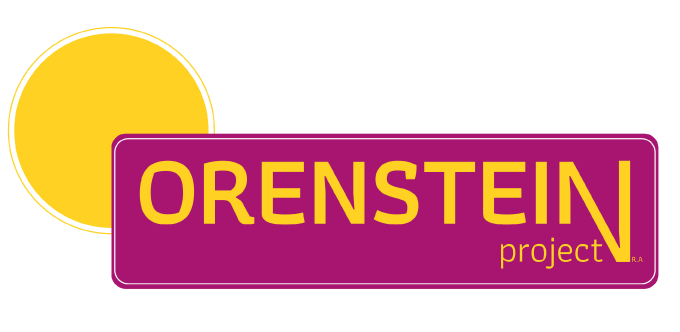
Orenstein Family
The Orenstein family, who reside in the United States, are philanthropists who assist the needy in Israel and the United States in a variety of ways.
The Orenstein family aspire to do their utmost to change the daily lives of children, teens, families, and individuals struggling with financial and social hardship.
Henry Orenstein passed away in December 2021 at the age of 98. His wife Susie and the Orenstein Foundation they founded together are dedicated to keeping Henry's vision and path.
Orenstein Family- Philanthropic activities
The story of Henry Orenstein's life 1923-2021

Henry Orenstein arrived in the United States in 1947 and began his career as a salesman. Soon after a toy bride caught his eye due to its high price ($29.90, a price that would be equal to $ 200 today).
Henry decided to try and create a doll model at an affordable price, and soon became an inventor and toy maker. His main activity was to make copies of expensive dolls sold in department stores. In the 1950s, Henry founded "Topper Toys", a factory that produced highly sought-after toys in the United States: popular dolls named Susy Cute, Dolly Surprise and toy cars named Johnny Lightning.
He also created a then innovative doll, a doll that blinked its eyes that he later patented. In his career he owned over 100 patents.
Henry Orenstein noticed special toys manufactured in Japan: toys that changed their shape from vehicles to robots - the Transformers. In 1983, he flew to the Takara toy company in Japan to acquire the rights to distribute the Transformers in the United States.
Henry approached the U.S. toy manufacturer Hasbro and persuaded them to produce the Transformers, which have been popular toys ever since.
Henry is an outstanding poker player and believes that poker is a fascinating and challenging game that combines many abilities and skills such as: odds/risk calculation, good memory and the ability to identify reactions of the players participating in the game. As he watched televised poker tournaments, he realized that the game bored viewers at home since they had no way of knowing which cards the players held.
Henry devised another invention and got another patent, which changed poker games worldwide, and created "windows" at the poker table so that a camera could shoot the cards under the table and give viewers a view of the cards held by the players. This invention revolutionized television viewers interest in poker games and since then, poker games have been broadcasted, receive wide exposure and their audience is growing. Henry also became a producer of poker tournaments on television.
Henry Orenstein z"l - Holocaust survivor

Henry Orenstein was born in 1923 in the town of Hrubieszow, located on the southeastern border of Poland.
Henry, one of the five children of the Orenstein family, grew up in an anti-Semitic environment. Henry excelled during his school years at the local high school but never received any award or recognition due to the school's policy not to award a certificate of excellence to Jews.
In 1939, when the Germans occupied Poland, Henry left Poland with his father and brothers and moved to Russia leaving behind the mother and sister, believing that women would not be harmed. In 1941, when Russia was also conquered by the Germans, Henry, his father and brothers returned to their city. In 1942, when the Gestapo sent the Jews of the city to the gas chambers in Sobibor, the Orenstein family members hid behind a double wall built for this purpose.
After the food ran out, the family decided to turn themselves into the Gestapo. The parents were loaded onto a truck that took them to the town cemetery where they were murdered and buried in a mass grave.
Thus, at the age of 19, Henry began his war of survival during which he experienced the horrors of the Holocaust and passed through five different concentration camps.
Henry and two of his brothers were transferred to a concentration camp where he heard over the loudspeaker that they were looking for Jewish scientists or mathematicians. Henry, who had witnessed the killing and suffering around him, realized that there were no escape routes from where he was and thought he might save his brothers and himself by presenting themselves as having the necessary skills even though they did not have these skills.
Fortunately, although the interviewers apparently understood that they were not scientists or mathematicians, Henry and his brothers managed to remain in the group of scientists established by German scientists who tried to find a way to exploit Jews in the camps, the Orenstein brothers thus avoided being sent themselves to a far worse fate.
On the eve of the end of the war, Henry Orenstein and his brothers survived a 10-day death march. Two days before the end of the war, his older brother was shot and killed. Of the seven Orenstein family members, Henry and his two brothers survived, and in 1947 the three brothers emigrated to the United States and began a new chapter in their lives.
Henry Orenstein wrote and published two fascinating books about the war period. "I Shall Live", which is told from the perspective of a Holocaust survivor and describes the difficult events in the concentration camps and the war.
Later, he wrote the book "Avram" about his good friend from his hometown, Abraham Silberstein, who immigrated to Israel before the war, served as a Jewish officer in the British army, fought bravely against the Nazis and took part in the establishment of the Jewish state.













